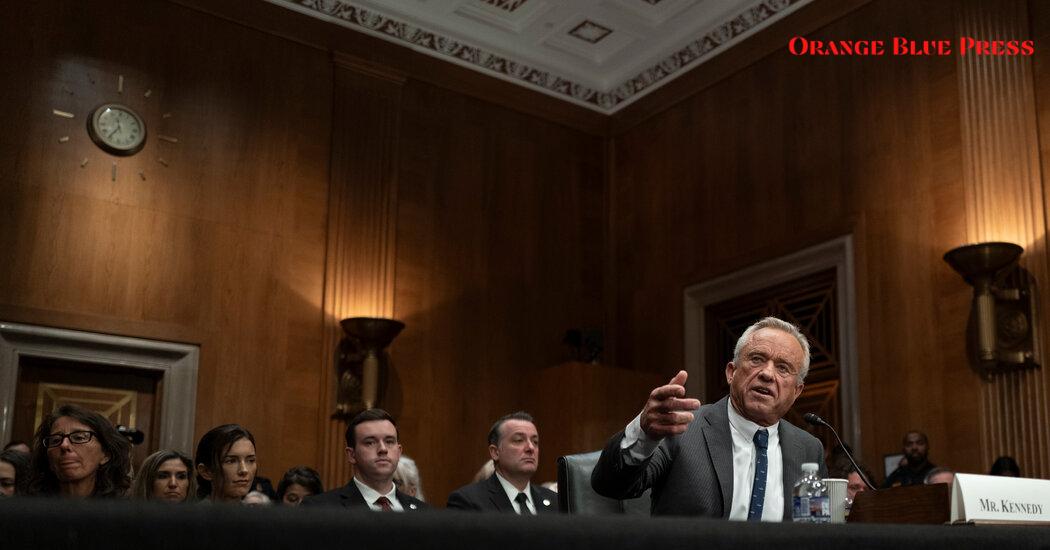In a significant move, Robert F. Kennedy Jr. (RFK Jr.) has successfully passed through a crucial Senate committee vote, advancing his nomination for Secretary of Health and Human Services (HHS). This is an important step in a nomination process that has been met with both enthusiasm and skepticism across the nation. Advocates are eager about RFK Jr.’s influence in health policies, while others express concerns regarding his past and positions on certain health issues.
RFK Jr.’s Journey to Nomination
The nomination of RFK Jr. has been marked by various challenges and triumphs. Having gained notoriety for his outspoken views on vaccines and public health, his entry into the official health oversight landscape is being watched closely. The Senate committee’s approval signals that he has garnered enough support to proceed, though opinions remain divided among lawmakers and citizens alike.
Controversy Surrounding Health Policies
RFK Jr.’s past statements on health topics, especially vaccines, have raised alarms. Critics worry that his controversial stance could impact public health policies negatively. However, supporters argue that his unique perspective could bring much-needed change to the HHS amidst current health challenges in the country. This blend of hopeful anticipation and apprehension is a defining characteristic of his nomination.
What Happens Next?
Now that RFK Jr. has passed the Senate committee, the nomination will head to the full Senate for a vote. If confirmed, he will be responsible for leading health initiatives, navigating challenges like the COVID-19 pandemic response, and addressing public health crises. The anticipation builds as the timeline for the Senate vote approaches, and every move is scrutinized by both supporters and opponents.
C Opinions from the Public
Public opinion is notably split regarding RFK Jr.’s nomination. Some public health advocates express enthusiasm, hoping that he may open up conversations about vaccine choice and broader health discussions. Others feel anxious, fearing that his confirmation could lead to policies that conflict with the consensus in public health. It is evident that the discussions surrounding his nomination will shape the future of health policy in significant ways.
Expert Opinions are Varied
Experts continue to weigh in on the nomination, contributing diverse viewpoints. Some cite RFK Jr.’s passion for health issues as a positive trait, while others emphasize the importance of rigorous health science in leadership roles. The varied opinions highlight the importance of having leaders who can address complex health topics while ensuring the safety of the public.
Conclusion: A Nomination Worth Watching
As RFK Jr.’s nomination advances to the Senate floor, it is clear that this is more than just a political procedure—it is a potential turning point in how health leaders are chosen and the policies they advocate. The outcome of this nomination has the potential to profoundly influence health initiatives in America. Those interested in the intersection of politics and health will certainly want to stay updated on this developing story.




















